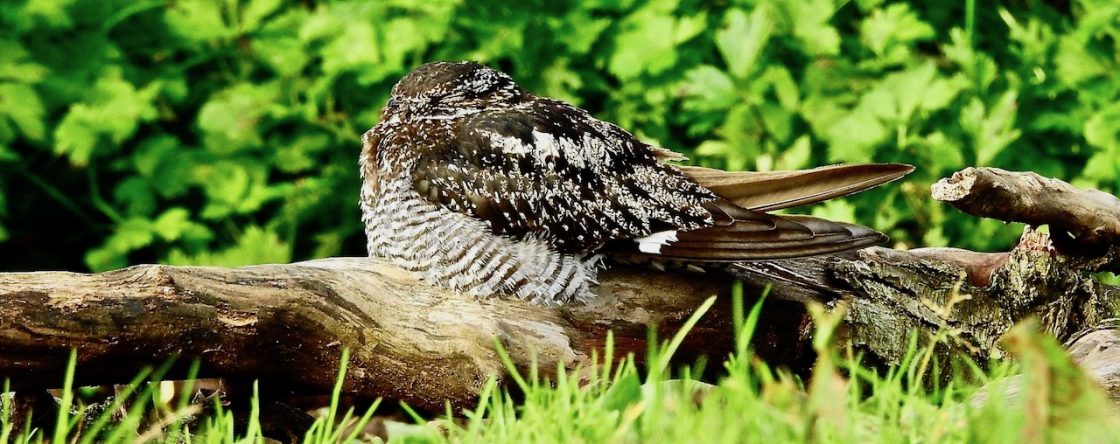A fine big calm high tide meant the beach car park at Ainsdale was closed to traffic today, and so the place was pleasantly quiet, and even though there was barely a f2-3 westerly blowing it was still rewarding enough seawatching over lunchtime, an hour or so before the high water.
For once the Common Scoter horde was scattered and remarkably active – no “black puddings” floating motionless on the swell today, they mostly were diving, preening and flying about all over the place.
Close enough to work through too, but after 45 minutes of ‘scoping there wasn’t the slightest hint of white plumage amongst them – ah well, that’s the way it goes.
An increase in the number of Red Throated Divers was good, and a few were still in superb summer plumage, while surprisingly large numbers of Razorbills were fishing reasonably close inshore.
Ainsdale 20.9.16, 1230-1325:
Razorbill 16
Guillemot 1
Gannet 5
Great Crested Grebe 7
Wigeon 1 north
Red Throated Diver 11
Common Scoter 1,000+
Red Breasted Merg 1f
Sandwich Tern 75+
Impossible to say how many scoter were in the bay, they were visible on the water right down to the bend in the coast at Freshfield and up to Birkdale from the top of the dunes, but there was worse ways to spend your lunchtime…


Good to be kept in touch with what’s happening on my home ground. Up here in the north Lakes the most notable events have been big flocks of Pinkfeet flying south, very high above the fells. I assume there are now significant numbers in and around west Lancs? It’s about time… High tide at Maryport yesterday was noteworthy only for the hundreds of Redshanks lining the harbour wall; remarkably, nothing else to be seen. Oh to be in Musselborough instead.
LikeLiked by 1 person
From Formby on 20th (7am to 2pm) had 6000 Common Scoter, could count as far as Birkdale, plus more seemed to be over the horizon, out of counting range of course. On Sunday 18th had 8000 in flat calm conditions; though no rarer Scoter amongst them. Sunday 18th also had 148 Guillemot, 13 Razorbill and 68 Red-throated Divers. Other highlights on the 20th were a Black Tern, 59 Gannets feeding and still at least 284 Sandwich Tern. Six Little Egret feeding on shrimps and gobies from the shore pools is not usual here and 884 Pinkfeet Geese arrived from over the sea to the NW and had a well deserved rest on the shore before continuing inland.
LikeLiked by 1 person
Nice work Steven. Interesting auk numbers for our stretch – I wonder what brought them in, in the absence of a raging hooley….Many thanks.
JD
LikeLike
Ring Necked Parakeet in gardens by Rimrose Valley this week.
LikeLike
As summer draws to a close, the Dee Estuary enters arguably its most exciting time of year due to the arrival of vast flocks of birds returning from their Arctic breeding grounds. The RSPB is inviting visitors to take part in a series of events across their Dee Estuary nature reserve to share some of the most impressive natural spectacles in this region.
The Dee Estuary is home to the largest little egret colony in Northern England and, with earlier sunsets which are another special autumn attraction on the Wirral, it becomes easier to witness the daily spectacle of over 300 flying in from the marsh to their night-time roost. To celebrate this wild wonder, ‘An Evening with Egrets’ guided walk is taking place on Saturday 8 October at RSPB Burton Mere Wetlands. The event costs £6.50 per person (£5 for RSPB members), half price for children. Booking is essential by phoning 0151 353 8478 or email deeestuary@rspb.org.uk.
Visitors can also take part in ‘Autumn Arrivals’ on Saturday 15 October at RSPB Point of Ayr near Talacre. This short guided walk involves crossing beach and sand dunes so suitable footwear and a decent level of fitness are required. The event is free of charge, but donations are welcome. Booking is essential by phoning 0151 353 8478 or email deeestuary@rspb.org.uk.
To experience the autumn tidal phenomenon, join ‘Parkgate High Tide Watch’ events on Monday 17 and Tuesday 18 October at the Donkey Stand and the Old Baths car park on Parkgate parade. Suitable for people of all ages and abilities, these events are free of charge, but donations are welcome. RSPB staff and volunteers will be on hand with telescopes and binoculars to enhance the impressive views. Timings vary depending on the tides, so visit rspb.org.uk/deeestuary for more details.
For further information on events and wildlife at RSPB Dee Estuary, visit rspb.org.uk/deeestuary.
LikeLike